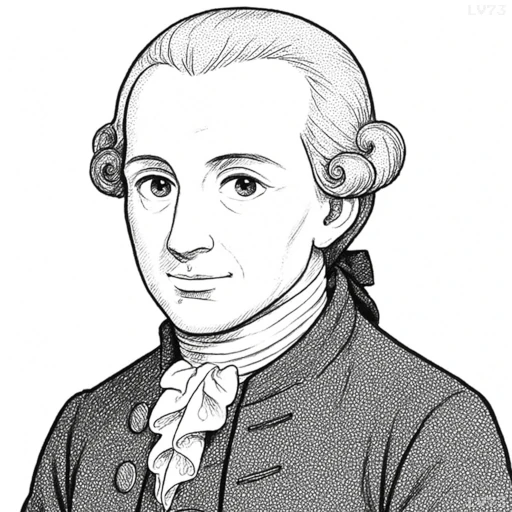“Religion is the recognition of all our duties as divine commands.”

- April 22, 1724 – February 12, 1804
- Born in Germany (East Prussia)
- Philosopher
table of contents
Quote
“Religion is the recognition of all our duties as divine commands.”
Explanation
In this quote, Immanuel Kant suggests that religion is essentially the recognition of moral duties as being not merely human-made rules but as commands that are divinely ordained. For Kant, moral duties—such as acting with justice, honesty, and compassion—are not simply social conventions but reflect a higher moral law that comes from a divine source. In his view, true religion is not about rituals, dogma, or outward observances but about recognizing and adhering to the moral law that transcends human reasoning, and treating these duties as part of a divine will. This perspective emphasizes the idea that moral obligations are universally binding and that the source of these moral imperatives is ultimately divine in nature.
In modern discussions, this quote raises questions about the relationship between religion and morality. Kant’s view suggests that moral laws should be understood as reflecting divine intentions, and that religion serves as the framework that helps individuals recognize and fulfill their moral duties. However, in contemporary secular societies, the debate often centers on whether morality is inherently tied to religion, or whether ethical behavior can be independent of religious belief. For example, human rights and social justice issues often involve moral duties that may or may not be explicitly framed within a religious context, yet Kant’s idea implies that these duties should still be viewed as universally binding and morally imperative, as though they were divinely commanded.
Historically, this quote reflects Kant’s attempt to reconcile reason with religion. He sought to show that moral action and the moral law are not arbitrary but have a divine foundation. His philosophy aimed to establish a rational framework for understanding religion that was compatible with the Enlightenment ideals of reason and autonomy, while still recognizing a divine moral order. Kant believed that faith was important, but it should be grounded in moral reason, making religion a rational acknowledgment of moral duties. This perspective has influenced modern discussions on the role of religion in moral philosophy and society, especially in the context of moral absolutism and debates about the secularization of ethics. Today, Kant’s ideas are often referenced in the ongoing discourse about the relationship between faith and reason, and the foundations of moral law.
Would you like to share your impressions or related stories about this quote in the comments section?

